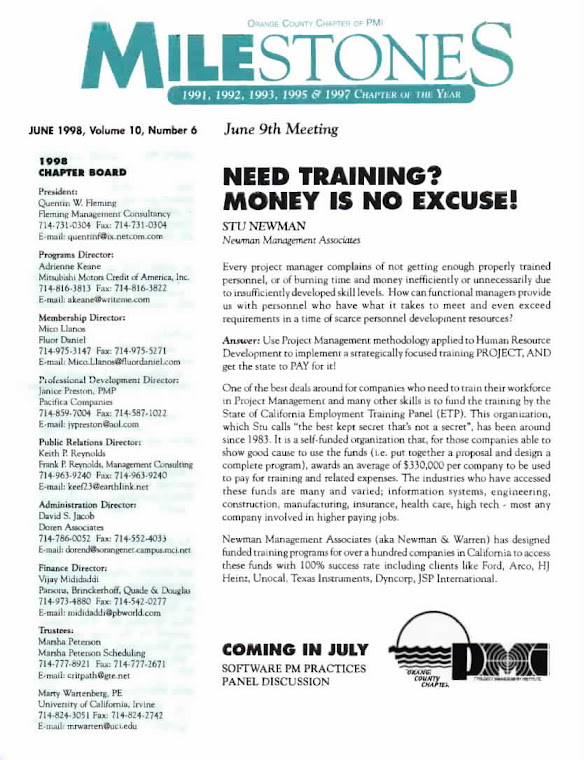#1 -Setting up your project with “level of effort” planning. Rather than having discrete tasks, you just create categories, like “design” or “engineering” and allocate a certain number of people to it over a fixed period of time. The right way to structure the WBS - make each task finite with a specific, measurable outcome.
#2 - Lack of Fidelity or Resolution; having tasks on the WBS so large in scope that we can only guess partial completion from week to week. Typically happens on larger projects where tasks aren’t broken down far enough.
#3 -We don’t have enough frequency of reporting information to be effective. An example is having a six month project with monthly reporting; by the 2nd update we are already 33% through the schedule and have insufficient time for corrective action vs. crises action.
Corollary to #3:
-We get information often enough, but it is based on time-late data. Example is having major cost categories (labor, material or ODC) in a project but each report update contains information aged many weeks prior and not current.



